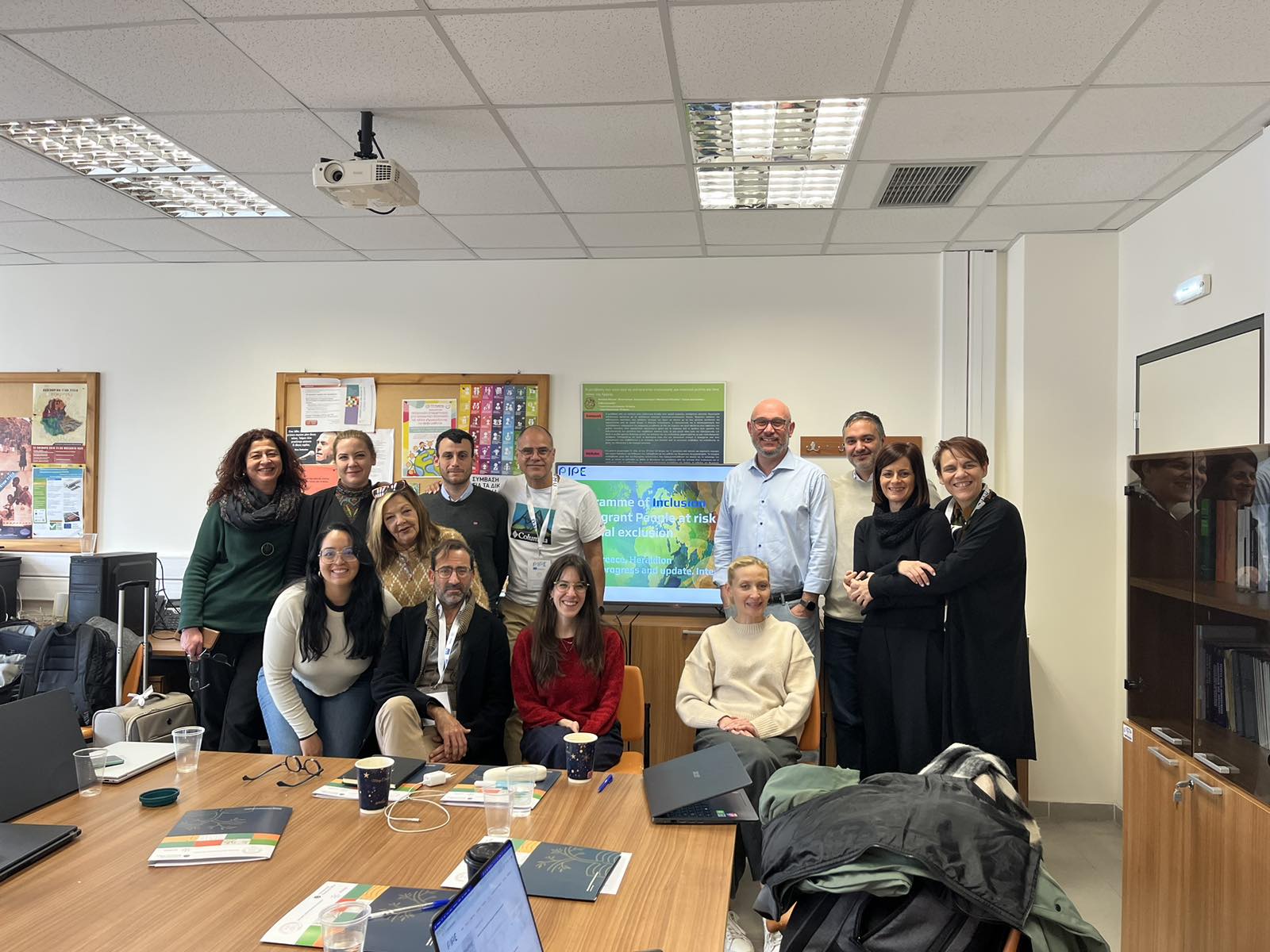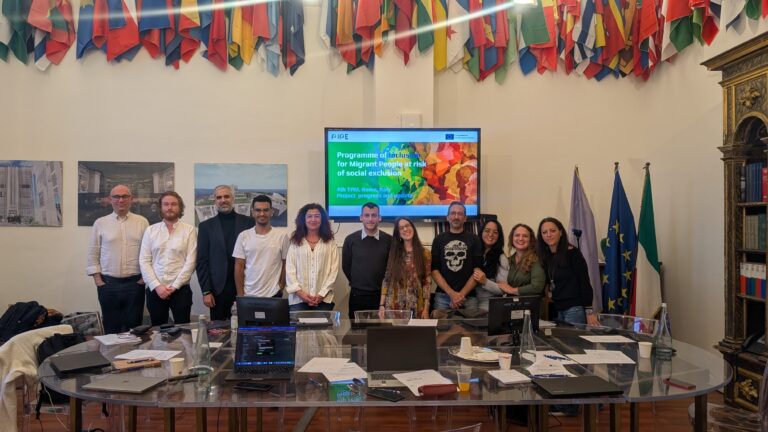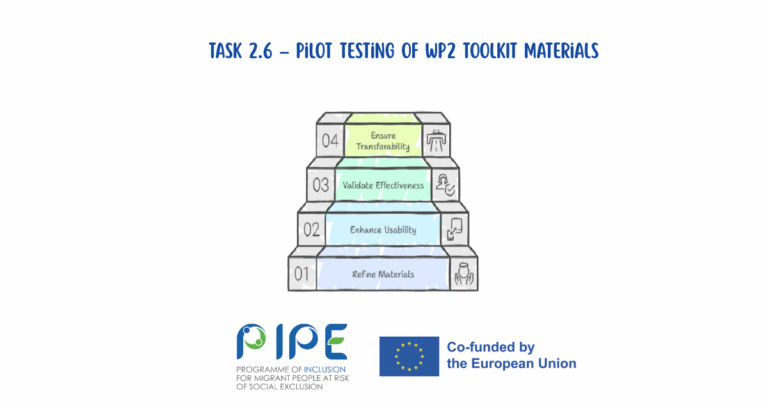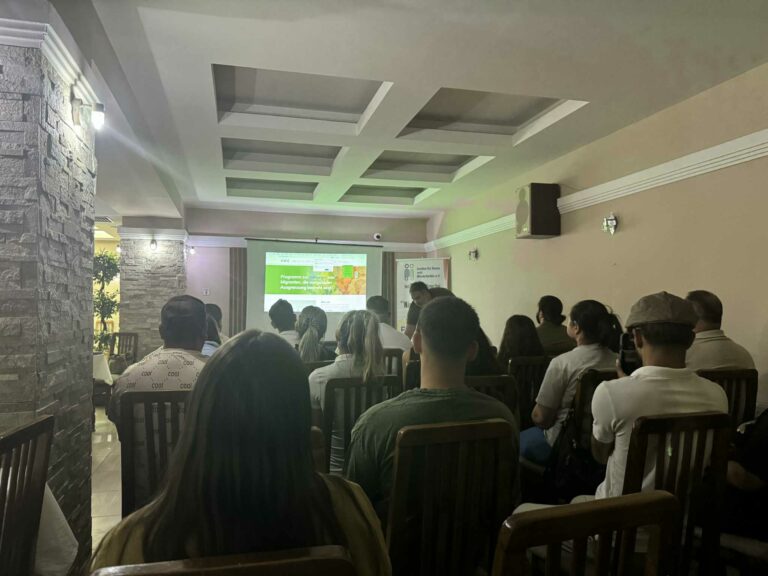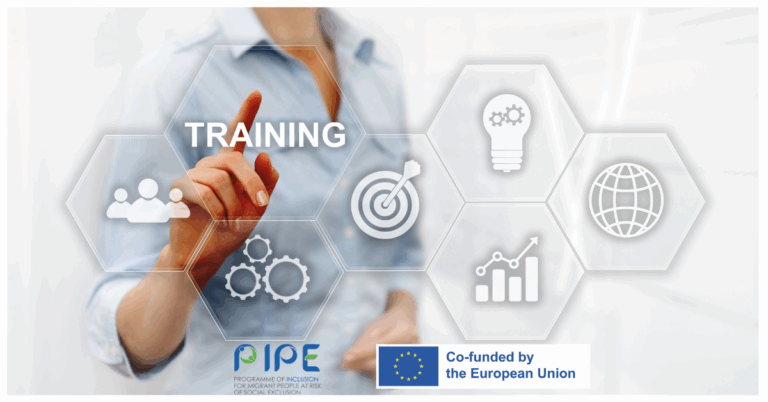Heraklion, Greece – The third Transnational Partner Meeting (TPM3) of the PIPE Project—Programme of Inclusion for Migrant People at Risk of Social Exclusion—took place on February 6-7, 2025, bringing together European partners committed to enhancing migrant integration through education, skills training, and innovative resources. The event, hosted by the Hellenic Mediterranean University (HMU), was held both in-person and online, fostering dynamic discussions on project progress and future strategies.
Strengthening quality control and professional training
The meeting kicked off with an opening address by HMU, setting the stage for two days of in-depth collaboration. One of the key discussions centered on WP1, where EVM led a mid-term project evaluation. Through interactive exercises, participants shared insights on improving efficiency, simplifying task execution, and ensuring project outcomes meet real-world needs.
In WP2, ULL showcased the latest developments in the PIPE Platform, which now offers multilingual resources, including a Guide for Teaching National Language for Migrants. Partners agreed on adding copyright licenses to all deliverables and discussed launching a cultural competence assessment tool for public institutions to refine migrant support strategies.
Enhancing soft skills and cultural awareness
The second half of the first day focused on WP3, where HMU presented findings from national research on migrant training needs. Partners aligned their reports to create a comprehensive analysis and advanced plans for a Modular Framework for Soft Skills Training. An online meeting in April will further refine this initiative, which will be hosted on the Moodle platform, allowing participants to obtain certificates upon completion.
Innovation and outreach take center stage
The second day saw a strong emphasis on WP4, led by AAU and IRMI, which highlighted progress in developing a Resource Guide for Migrants. The partners also explored the integration of gamification techniques to make support materials more engaging and effective.
MAG spearheaded WP5 discussions on dissemination and promotion strategies. The project’s newsletter, website updates, and social media performance were reviewed, with a commitment to increasing online visibility. Partners also agreed to enhance the project’s presence on the EPALE platform and ensure regular publication of articles to amplify its impact.
Strategic planning for the future
EVM led the project management session, outlining key deadlines for financial and technical reporting. A structured engagement strategy was introduced, aiming to foster deeper collaboration with stakeholders, including public institutions and migrant community representatives.
As the meeting concluded, partners expressed satisfaction with the progress made and reiterated their commitment to the project’s objectives. Special recognition was given to HMU for their excellent organization of the event.
Rome to host next transnational meeting
The PIPE Project’s fourth Transnational Partner Meeting (TPM4) is set to take place in Rome, Italy, on October 16-17, 2025, hosted by MAG. The gathering will focus on reviewing deliverable progress, refining training modules, and further strengthening international cooperation.
With each milestone, the PIPE Project reaffirms its mission to empower migrants through targeted education and support, paving the way for more inclusive societies across Europe.

